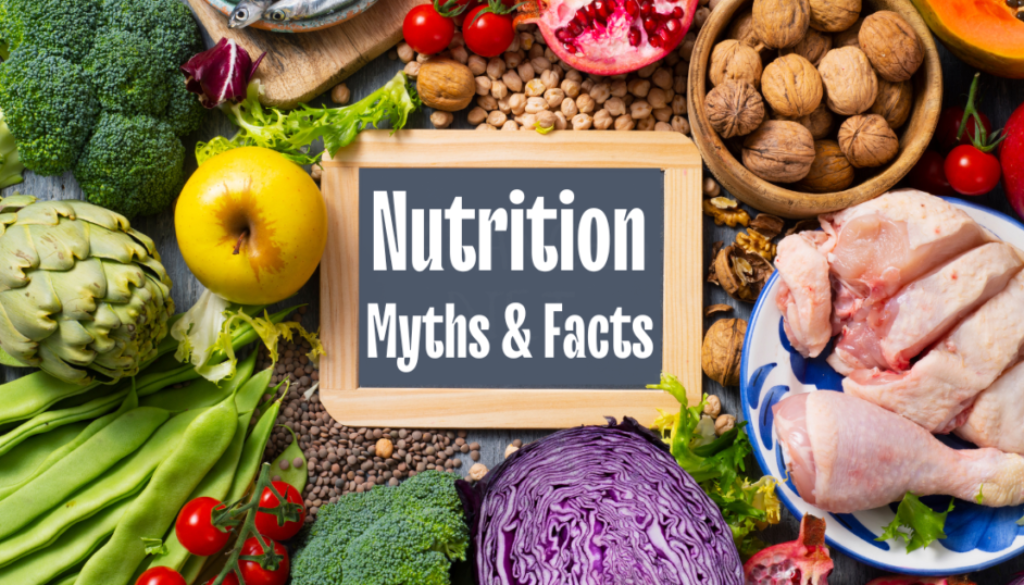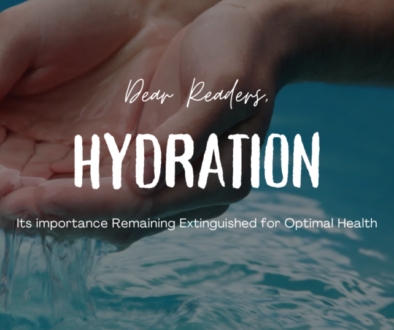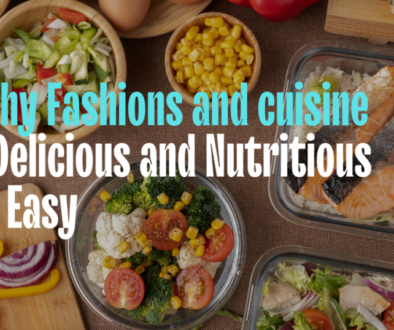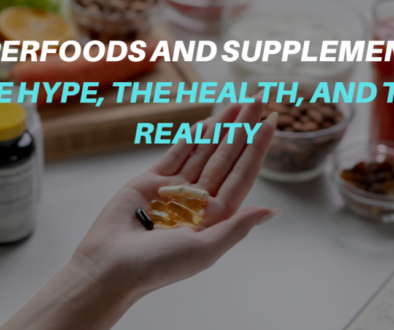Nutrition Myths and Facts: Separating Truth from Fiction
Muhammad Ahmar Nutrition and Diet 0
In the tremendous universe of sustenance, it’s not difficult to get befuddled by the plenty of fantasies and deception drifting around. To assist you with exploring through this labyrinth of healthy guidance, we ‘ve gathered a rundown of normal sustenance fantasies and the information that expose them. We should make a plunge and clear up probably the most quiet misinterpretations.
Myth 1 Carbs Are Bad for You
Fact Not all carbs are created equal.
Sugars have been darkened in various famous weight control plans, yet they’re a crucial wellspring of energy for your body. The key is to pick the right sorts of carbs.
Complex Carbs: Set up in whole grains, vegetables, and legumes, these give sustained energy and essential nutrients.
Simple Carbs: Set up in sticky snacks and reused foods, these can lead to energy harpoons and crashes.
Bottom Line: Opt for whole, undressed carbs like whole grains, fruits, and vegetables, and limit your input of refined carbs and sugars.
Myth 2 Eating Fat Makes You Fat
Fact Healthy fats are essential for your body.
The possibility that all fats are terrible for you is obsolete. Solid fats are fundamental for cerebrum capability, chemical item, and retaining fat-responsible nutrients( A, D, E, and K).
Healthy Fats: Set up in avocados, nuts, seeds, olive oil painting, and adipose fish. Unhealthy Fats: Trans fats and inordinate impregnated fats can increase the threat of heart complaint.
Nethermost Line: Incorporate healthy fats into your diet and avoid trans fats and limit impregnated fats.
Myth 3 You Need to Eat Meat for Protein
Fact There are plenitude of factory- grounded protein sources.
While meat is a rich source of protein, it’s not the only option. numerous factory-grounded foods give ample protein.
Factory- Grounded Proteins: Sap, lentils, chickpeas, quinoa, tofu, tempeh, nuts, and seeds.
Complete Proteins: Quinoa and soy products are exemplifications of factory- grounded foods that contain all nine essential amino acids.
Bottom Line: A well- planned submissive or vegan diet can give all the protein you need.
Myth 4 Detox Diets Cleanse Your Body
Fact Your body formerly has a erected- in detox system.
Detox diets and cleanses claim to relieve your body of poisons, but your liver, feathers, and digestive system are formerly complete at detoxifying your body.
Healthy life: Eating a balanced diet, staying doused , and avoiding inordinate alcohol and reused foods support your body’s natural detoxification processes.
Primary concern: Skirt the detox diets and focus on keeping a solid, adjusted diet.
Myth 5 Breakfast Is the utmost Important mess of the Day
Fact It’s important to hear to your body’s hunger cues.
While breakfast can give energy to start your day, it’s not inescapably the most important mess for everyone. What matters most is the overall quality and balance of your diet throughout the day.
Healthy Breakfast Options: If you choose to eat breakfast, conclude for balanced options like oatmeal, yogurt with fruit, or eggs with whole- grain toast.
Bottom Line: If you ’re not empty in the morning, it’s okay to stay until you are. Focus on eating nutritional foods when you do eat.
Myth 6 Gluten-Free Diets Are Healthier for Everyone
Fact Gluten-free diets are necessary for people with celiac complaint or gluten perceptivity, but not for everyone.
Gluten-free diets are essential for individualities with celiac complaint or gluten dogmatism, but there is no substantiation to suggest they offer health benefits to those without these conditions.
Nutrient Deficiencies: Various sans gluten items are less strengthened and can warrant fundamental supplements like fiber, iron, and B nutrients.
Main Concern: Except if you have a clinical motivation to stay away from gluten, a decent eating routine that incorporates entire grains is healthy.
Myth 7 Eating Late Around evening time Causes Weight Gain
Fact It’s not when you eat, yet what and how significant you eat that is important.
Weight gain is principally told by your absolute calorie information and consumption, not the planning of your refections.
Solid Late-Night Tidbits: In the event that you ‘re void around evening time, pick sound bites like a piece of natural product, yogurt, or a sprinkle of nuts.
Primary concern: Spotlight on your general eating regimen and calorie balance as opposed to the time you eat.
Myth 8 All Calories Are Made Equivalent
Fact The wellspring of your calories matters.
While the facts really confirm that a calorie is a unit of energy, the nutritive worth of the food sources outfitting those calories is vital.
Supplement Thick: Food varieties Food sources like vegetables, natural products, entire grains, and extra proteins give fundamental supplements alongside calories.
Empty Calories: Foods grandly in added sugars and unhealthy fats give calories with little nutritive value.
Bottom Line: Choose nutrient- thick foods that give vitamins, minerals, and other salutary composites.
Myth 9 You Need Supplements to Be Healthy
Fact utmost people can get the nutrients they need from a balanced diet.
Supplements can be helpful in certain situations, similar as during gestation or for individualities with specific scarcities, but they aren’t a cover for a healthy diet.
Whole Foods: Eating a variety of whole foods ensures you get a wide range of nutrients in their most bioavailable form.
Bottom Line: Focus on getting your nutrients from food first, and use supplements as demanded grounded on professional advice.
Myth 10 Fresh Produce Is Always Better Than Frozen
Fact Frozen fruits and vegetables can be just as nutritional as fresh bones .
Frozen yield is frequently picked at peak anecdotage and flash-firmed to save nutrients. It can be a accessible and cost-effective option.
Nutrient Retention: Indurating helps retain vitamins and minerals, and firmed yield can occasionally be further nutrient- thick than fresh yield that has traveled long distances.
Bottom Line: Do n’t vacillate to use frozen fruits and vegetables as part of a healthy diet.
Frequently Asked Questions
Q: Are low- fat or fat-free foods healthier?
A: Not inescapably. numerous low- fat or fat-free products contain added sugars and unhealthy paddings to ameliorate taste and texture. Whole, minimally reused foods are frequently a better choice.
Q: Is it true that you should drink eight spectacles of water a day?
A: While eight spectacles is a common recommendation, hydration requirements vary grounded on factors like age, exertion position, and climate. Drink when you ’re thirsty and insure you are consuming fluids throughout the day.
Q: Can you get enough protein on a submissive diet?
A: Yes, a well- planned submissive diet can give ample protein. Include a variety of protein-rich factory foods like sap, lentils, tofu, and nuts.
Q: Is eating small, frequent refections more for metabolism?
A: There’s no strong substantiation that eating small, frequent refections boosts metabolism compared to eating three larger refections. What’s more important is the total sweet input and nutritive balance of your diet.
Q: Are organic foods always healthier?
A: Natural food sources can have more modest fungicides and might be all the more harmless to the ecosystem, however they aren’t inevitably more nourishing than ordinary food sources. Center around eating different foods grown from the ground, regardless of whether natural.
Conclusion
Exploring the universe of nourishment can be overwhelming with every one of the legends and falsehood out there. By understanding the information and securing on a fair, supplement rich eating routine, you can pursue better decisions that help your prosperity. Streak back, there is no bone – size-fits-all way to deal with sustenance. hear to your body, eat different entire food sources, and look for exhortation from great wellbeing experts when requested. Then’s to exposing fantasies and embracing a better, more educated way to deal with eating!




